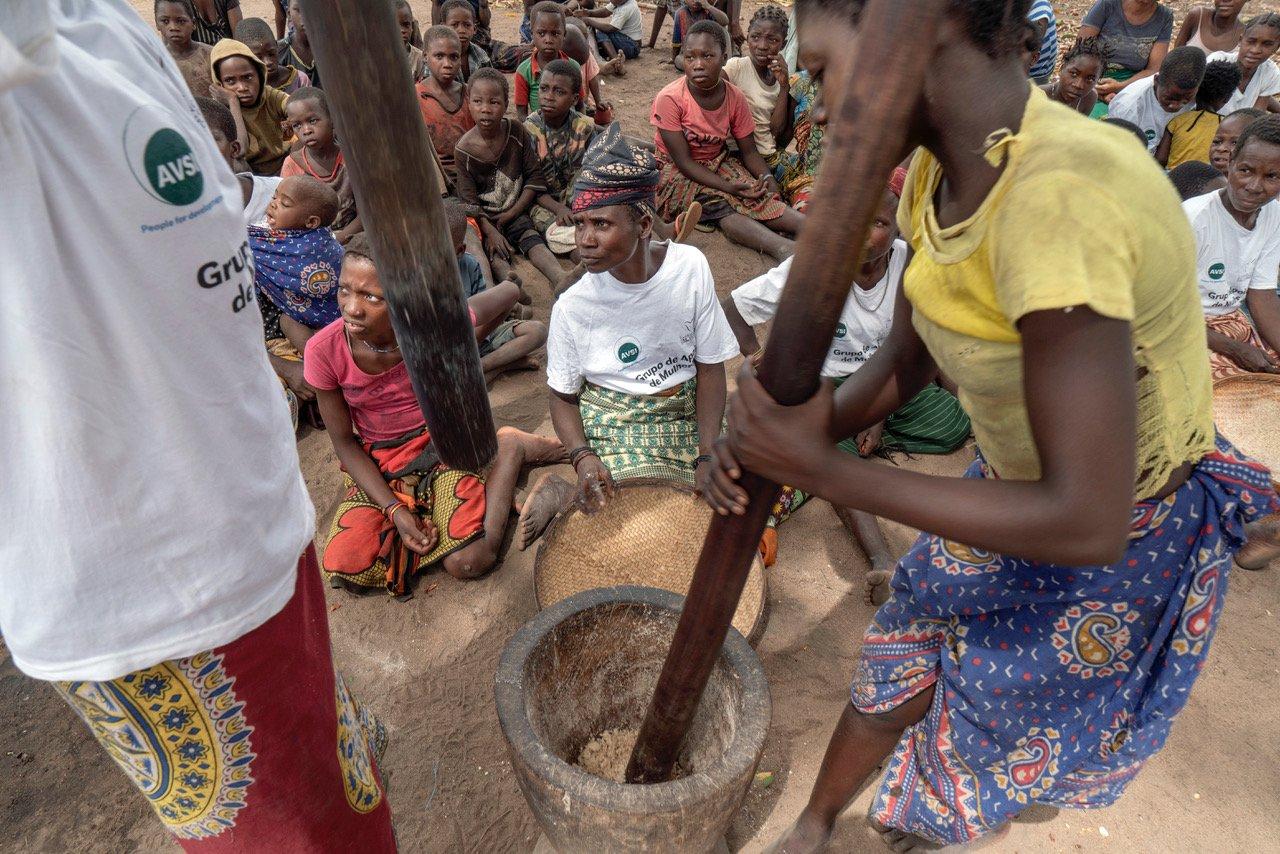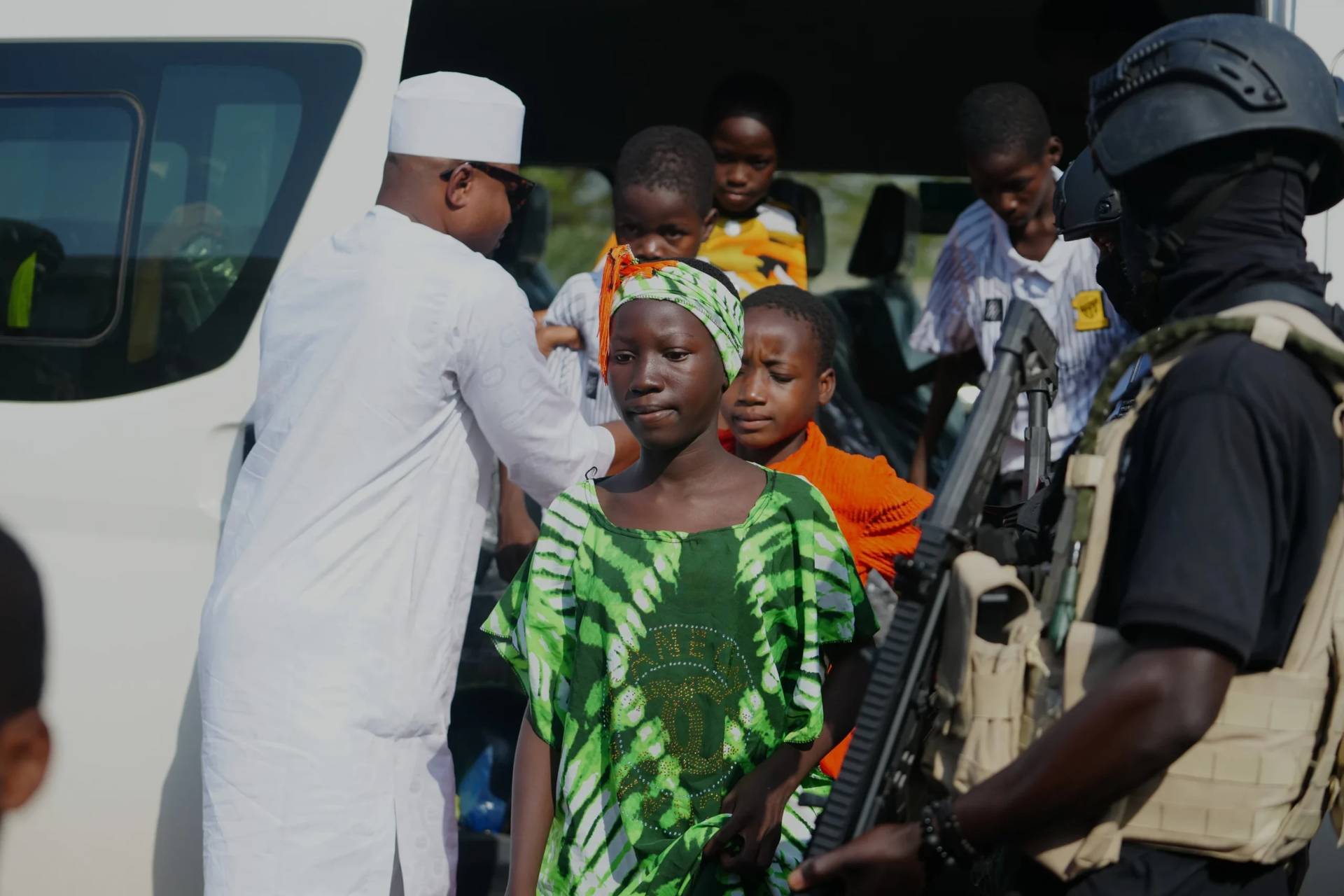ROME — The suffering of hundreds of thousands of people in Mozambique fleeing war and persecution requires a commitment by the international community, not only to safeguard the country’s present, but also to ensure its future, an Italian missionary said.
Speaking to Catholic News Service Aug. 5 from his office in the Mozambican capital, Maputo, Italian Father Giorgio Ferretti, one of the leaders of the Community of Sant’Egidio in the country, said that while food and aid are crucial in confronting the worsening humanitarian crisis, authentic Christian witness is just as important.
“This is just my experience, but I can say personally and with the Community of Sant’Egidio, we try to live in a simple way, witnessing the Lord in our peaceful life, trying to build some links of peace wherever we are because, as Christians, we must give witness with our smile, with our words, with our kindness, with our tenderness, as Pope Francis says,” Ferretti said.
“We must all work together for peace,” he said.
Since 2017, Mozambique has been ravaged by terrorist attacks by al-Shabab militants linked to the Islamic State in the northern province of Cabo Delgado. According to an Aug. 3 report by the Financial Times, the attacks have claimed the lives of more than 3,000 people and displaced more than 800,000 men, women and children.
At a news conference in Rome July 21, Father Angelo Romano, head of Sant’Egidio’s international relations office, called on Italian political leaders and the international community at large to come to the aid of those suffering in the country.
“Let us not abandon Mozambique in the dramatic moment it is living,” Father Romano said. “Too little has been said about it in our country; there has been an absence.”
Ferretti told CNS that among those suffering the most due to the worsening crisis are children and families who were separated while fleeing.
“We are talking about 400,000 children; almost half of the population of these refugees are children,” he said. “Then you have among these families a lot of difficulties because some of them lost relatives or parents, leaving their villages in a rush because they were attacked. Some of them were lost in the forest, others were killed.”
Another growing concern, Ferretti said, is the increasing poverty caused by the displacement. While international and Catholic organizations like Sant’Egidio are trying “to do the best that we can” to aid those in need, “it is not sufficient.”
“It’s a drop in the ocean, but it’s a way to try to make some difference,” Ferretti told CNS.
“When you’re talking about 800,000 refugees, you are talking about — for a country like this — a very serious humanitarian problem. So, what we try to do is give (them) food. That is the first and the principal help because, without it, it’s impossible to live,” he explained.
The complexity of the current crisis, he added, requires “a complex solution” that requires dialogue and a commitment to the country’s development to overcome poverty and youth unemployment.
“I think that we must, in this moment, protect the weak, secure the territory, give food and help with medicine, and (at the same time) work for a different future, building dialogue, (creating) links within society” and fostering peace.
Ferretti told CNS prayer and action are the foundations of Christian life and the tools needed to help not only those suffering in Mozambique but also those on the front lines of the humanitarian crisis.
“As Pope Francis very rightly said, ‘We are all in the same boat.'” he said. “Or we survive together or it will be a serious problem for the whole world.”

















